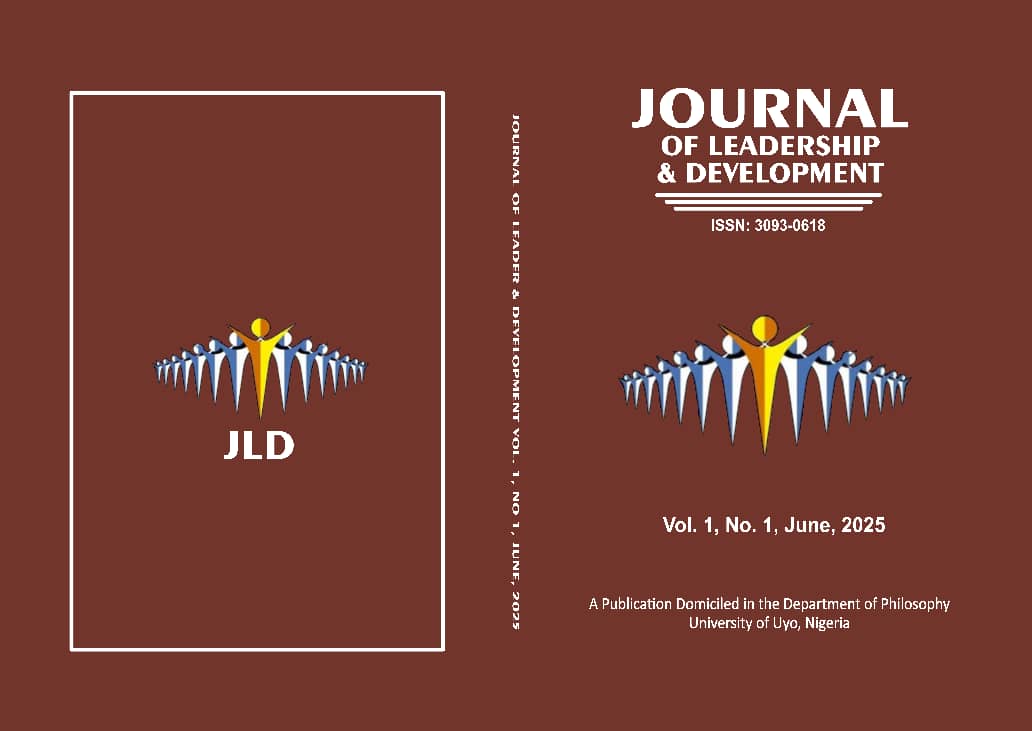POWER-SHARING AND INSTITUTIONAL DESIGNS FOR STABILITY IN NIGERIAN STATE
Joseph Emmanuel 1
Rahila Elisha Zacharia 2
Enoch Hassan Kure 3
Center for Peace and Security Studies, Modibbo Adama University Yola, Nigeria 1, 2 & 3
Corresponding Email: Josephemmanuel199000@gmail.com 1
Abstract
Despite the adoption of various power-sharing mechanisms aimed at managing Nigeria’s complex ethno-religious and regional diversity, the country continues to grapple with persistent political instability, violent conflicts, and deep-seated grievances among its constituent groups. Institutional frameworks such as federalism, the federal character principle, and the informal practice of zoning political offices were designed to promote inclusiveness, equitable distribution of resources, and a sense of belonging among Nigeria’s diverse populations. It is against this backdrop that this study investigated the effectiveness of power-sharing mechanisms in fostering national integration and mitigating ethno-religious conflicts in Nigeria, a country marked by deep-seated ethnic, religious, and regional divisions. The research was guided by four specific objectives and four questions focusing on the historical rationale for power-sharing, the effectiveness of the Federal Character Principle, the impact of federalism and state creation, and the extent to which these mechanisms have addressed conflict and secessionist agitations. A descriptive survey design was adopted. The population included political officeholders, public servants, academics, and civil society actors. A total of 250 respondents were purposively and stratifiedly selected from the six geopolitical zones to ensure regional and group representation. Data were collected using a 60-item structured questionnaire titled “Institutional Power-Sharing Assessment Questionnaire (IPSAQ)” rated on a 5-point Likert scale. The instrument was validated by experts and pilot-tested in Kogi and Abia States, yielding a reliability index of 0.84. Questionnaires were administered physically and electronically over six weeks, and data were analyzed using descriptive statistics like means and standard deviations. The findings revealed that while power-sharing is historically justified—rooted in Nigeria’s colonial legacy, civil war, and constitutional reforms—its practical impact remains limited. The Federal Character Principle provides symbolic inclusion but is undermined by corruption, weak enforcement, and perceptions of regional dominance. Similarly, federalism and state creation enhance minority representation but deepen inter-state inequality and economic dependence. Power-sharing arrangements have had minimal success in resolving ethno-religious tensions and secessionist pressures, largely due to elite manipulation and failure to address underlying socio-economic grievances. The study concludes that while power-sharing has contributed to a degree of stability, it must be reformed and complemented by broader structural changes to foster genuine national cohesion.
Keywords: Power-sharing, Federal Character Principle, Federalism, National Integration, Rotational Presidency, Institutional Design


